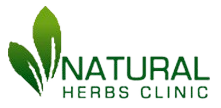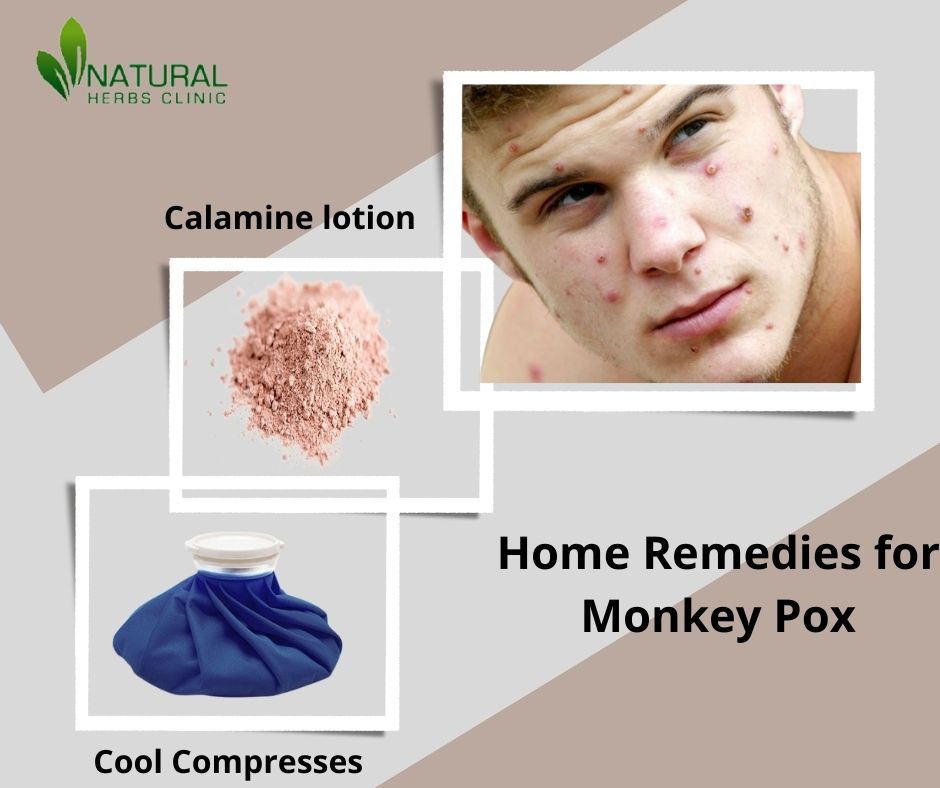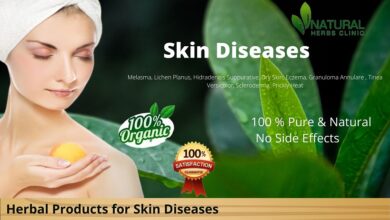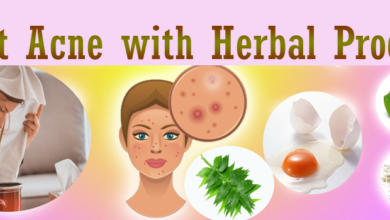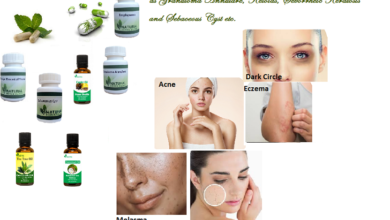Information Regarding Monkey Pox and its Home Treatment
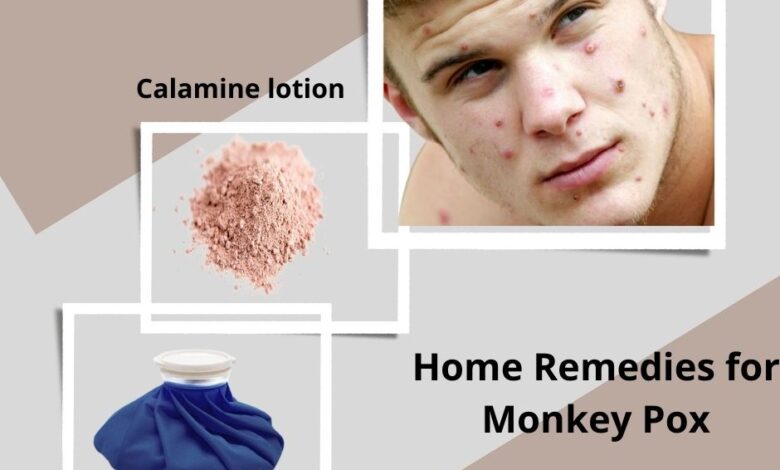
There are lots of Home Remedies for Monkey Pox and other skin disease are available that are very helpful to treat the skin condition.
What is Monkey Pox?
The monkey pox virus causes the disease monkey pox. It’s a zoonotic virus, which means it may transfer from animals to humans. It can also spread from person to person.
What are some of the signs and symptoms of monkey pox?
Fever, strong headache, muscle aches, back discomfort, low energy, swollen lymph nodes, and a skin rash or lesions are all common symptoms of monkey pox. The rash normally appears one to three days after the fever has started. Lesions can be flat or slightly elevated, filled with clear or yellowish fluid, crusted, dried up, and eventually fall off. A person’s number of lesions might range from a few hundred to several thousand. The rash mostly affects the face, palms of the hands, and soles of the feet. They also appear on the lips, genitals, and eyes.
Symptoms usually last 2 to 4 weeks and go away on their own if not treated. Consult your doctor if you think you have symptoms that could be caused by monkey pox. Tell them if you’ve had close contact with someone who has monkey pox, whether it’s suspected or confirmed.
Monkey pox is transmitted from animals to people in a variety of ways.
When individuals come into personal touch with an infected animal, monkey pox can transmit to them. Rodents and primates are examples of animal hosts. Avoiding unprotected contact with wild animals, especially those that are sick or dead, can lower the risk of contracting monkey pox from them (including their meat and blood). Any items including animal meat or parts should be fully cooked before eating in endemic countries where animals spread monkey pox.
Monkey pox is passed from person to person in a variety of ways.
Monkey pox patients are contagious while they are experiencing symptoms (normally for between two and four weeks). Monkey pox can be contracted by close physical contact with someone who is exhibiting symptoms. The rash, body fluids (such as fluid, pus, or blood from skin lesions), and scabs are all extremely contagious. Clothing, blankets, towels, and things such as dining utensils/dishes that have been contaminated with the virus as a result of contact with an infected individual can infect others.
Infectious ulcers, lesions, and sores in the mouth can also transfer the virus through saliva. People who have close contact with an infectious person, such as health care providers, household members, and sexual partners, are more likely to become infected.
The virus can also be passed from a pregnant woman to her foetus through the placenta, or from an infected parent to their kid through skin-to-skin contact during or after birth.
It’s unclear whether those who don’t show any signs of the sickness can spread it.
Who is at risk of being infected with monkey pox?
Anyone who comes into direct physical contact with someone who has monkey pox symptoms or with an infected animal is at the greatest risk of contracting the disease. Those who have been vaccinated against smallpox are likely to be immune to monkey pox infection. Younger people, on the other hand, are unlikely to have been inoculated against smallpox because smallpox immunization was discontinued worldwide when the illness was declared eliminated in 1980. Even though persons who have had their smallpox vaccine will be protected against monkey pox, they must still take steps to protect themselves and others.
Monkey pox can cause more serious symptoms and death in newborns, children, and adults with preexisting immune weaknesses. Health care personnel are also at a higher risk because they are exposed to the virus for longer periods of time.
What can I do to keep myself and others safe from Monkey Pox?
Limit your interaction with those who have suspected or confirmed monkey pox to lower your risk.
If you have to come into touch with someone who has monkey pox because you work with them or live with them, encourage them to self-isolate and conceal whatever skin lesions they have if they can (e.g., by wearing clothing over the rash). They should wear a medical mask when you are physically close to them, especially if they are coughing or have lesions in their mouth. You should also put one on. When feasible, avoid skin-to-skin contact and wear disposable gloves if you have direct touch with lesions. If the person cannot do it themselves, use a mask when handling any clothing or bedding.
Hands should be washed with soap and water or an alcohol-based hand rub on a regular basis, especially after contact with an infected person, their clothes, bed sheets, towels, and other items or surfaces they have touched or that may have come into contact with their rash or respiratory secretions (e.g., utensils, dishes). Warm water and detergent should be used to wash the person’s clothes, towels, bed sheets, and dining utensils. Any contaminated surfaces should be cleaned and disinfected, and any contaminated waste (such as dressings) should be disposed of properly.
Is monkey pox contagious among children?
Children are more likely than adolescents and adults to develop severe symptoms. Through birth or early physical contact, the virus can be transferred to a foetus or a newborn.
Home Remedies for Monkey Pox Natural Treatments
There are a number of Home Remedies for Monkey Pox you can do to alleviate the discomfort of Monkey Pox and ensure that it heals as quickly as possible.
To begin, avoid scratching monkey pox blisters or scabs. Scratching can leave scars and impede the healing process, as well as increase the chance of a subsequent infection.
Wearing gloves may assist if your child is having problems resisting the need to scratch, especially at night. It’s also a good idea to keep your child’s fingernails clipped short. (1)
Several home remedies for monkey pox might help relieve the itching, pain, and discomfort. These are some of them:
Cool Compresses
Applying a cold-water-soaked towel to painful or itchy regions and leaving it in place for a few minutes to an hour might help relieve discomfort and minimize the urge to scratch.
Cool Bath
Bathing in chilly water with additional ingredients like baking soda, rolled or ground oats, or a commercial oatmeal bath solution can help relieve the itching caused by monkey pox.
When used every three to four hours for the first few days of Skin Disease monkey pox symptoms, both wet compresses and chilly baths may be most beneficial at alleviating itching.
Calamine lotion
Calamine lotion dabs applied to monkey pox blisters may help in Natural Treatment for Monkey Pox. Just make sure it doesn’t get in your eyes.
Cold, soft, bland foods
Sores in your mouth from monkey pox can be very bothersome and make eating and drinking difficult.
Foods that aren’t too hot, easy to chew and swallow, and don’t irritate the mouth can help to alleviate the discomfort. This involves avoiding foods that are hot, salty, or acidic.
Antihistamines These medications, such as Benadryl (diphenhydramine), may be useful when other treatments for itching aren’t working. Before administering an antihistamine to your child, consult your doctor and make sure you don’t go above the suggested amount.
Tylenol is a type of pain reliever (acetaminophen) Tylenol can be used to relieve pain and cure a mild fever. For monkey pox, it’s the sole pain medication that’s commonly suggested. (1,2,3)
When you have monkey pox, it’s critical not to take aspirin. This can result in Reye’s syndrome, a dangerous disorder that affects your brain and liver. In youngsters, Reye’s syndrome can be fatal. (4)
When you have monkey pox, you should not use any no steroidal anti-inflammatory drugs (NSAIDs) without first consulting your doctor. According to the Mayo Clinic, there is some evidence that doing so may foster additional infections or cause tissue damage. (1)
Advil (ibuprofen) and Aleve are two over-the-counter NSAIDs (naproxen). Consult your doctor if you are using any prescription NSAIDs, such as Celebrex (celecoxib).
Steps to Prevent Spreading Infections
Aside from any treatments done to alleviate discomfort, certain fundamental precautions should be taken to ensure that your monkey pox heals as quickly as possible.
Remain at home. Because monkey pox is highly contagious, both adults and children who have it should stay at home until all blisters have popped and a crust has formed.
Bathe with soap and water on a regular basis. Keeping your skin clean lowers your chances of contracting another illness.
To avoid irritation, pat your skin dry after washing rather than rubbing it.
Hands should be washed often. Touching or scratching your skin with dirty hands increases your chances of causing a secondary illness.
Rest for a while. Take it easy while you have monkey pox, especially if you have a fever or are tired. This can assist to relieve tension on your body and promote healing.
